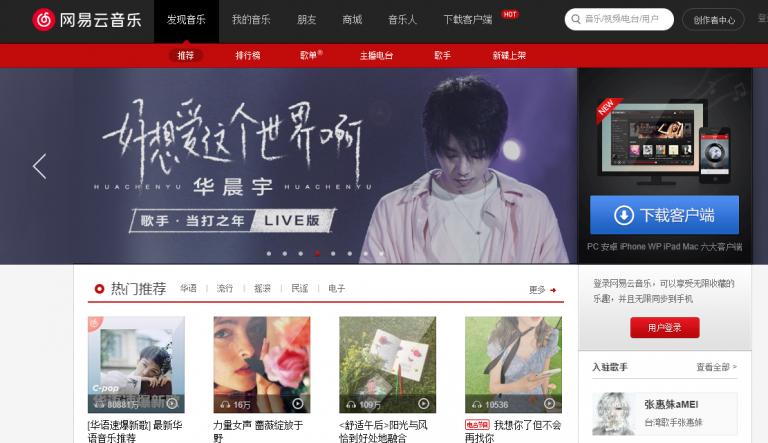Mobile Application Market in China

Ever considered venturing into the dynamic Chinese mobile app market as an app developer? If so, brace yourself for a distinctive set of rules when it comes to marketing and launching your creation. To help you navigate these uncharted waters, I’ve compiled a set of essential tips that can serve as your guiding light.
Since 2011, the count of mobile phone subscribers in China has been on an astronomic ascent, culminating in an unprecedented milestone of over 1.25 billion users in April 2014. Remarkably, as early as the conclusion of 2012, China had already clinched the global title for the highest number of mobile phone users within its borders.
Cost-Effective Agency
KPI and Results focused. We are the most visible Marketing Agency for China. Not because of huge spending but because of our SMART Strategies. Let us help you with: E-Commerce, Search Engine Optimization, Advertising, Weibo, WeChat, WeChat Store & PR.
According to Statista in the realm of April 2023, the numerical landscape reveals a staggering truth: the expanse of mobile cell phone subscriptions in China eclipsed 1.7 billion. Verified through authoritative government statistics, the nation proudly touts a striking 99.7 percent penetration rate for mobile internet.
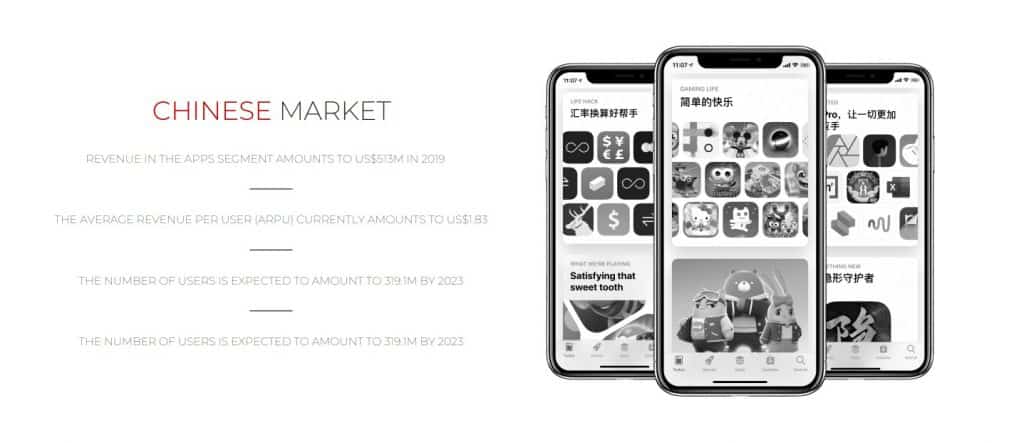
Distribution of Operating Systems (OS) in the Chinese Market
Android reigns supreme with a commanding 79% market share. Conversely, iOS app store claims a comparatively modest 20.4% slice of the entire market. Surprisingly, despite the numerical difference, harnessing the power of Apple’s iOS could prove to be a savvy maneuver for your inaugural app launch.
The rationale? It’s all about simplicity. While iOS provides a single store to navigate, the Android arena offers more than 500 application stores, introducing a considerable layer of complexity.
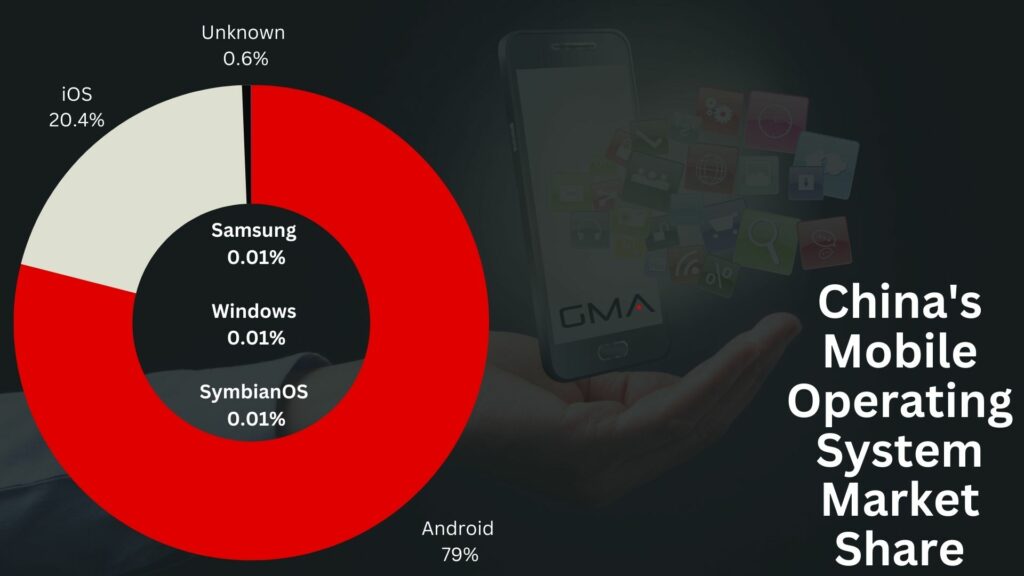
Top Android App Stores in China
In the year 2023, a notable figure commands the spotlight in the Chinese app landscape—the Huawei App Store, reigning supreme with a substantial 28% stake in the nation’s market share. A prominent contender within the realm of domestic Android app markets, Huawei has undertaken a journey of consistent enhancements within the application domain, and its achievements stand out unequivocally.
Notably, the Huawei App Market proudly pioneers the implementation of “Developer Real-Name Authentication,” setting a global precedent. Every developer integrating into this platform undergoes rigorous real-name authentication audits, a measure aimed at sieving out third-party applications with obscure origins within the expansive Android ecosystem, thus bolstering user safety.
Securing the second spot, OPPO clinches a 16% slice of the market pie. OPPO’s application stores span diverse domains, but the jewel in its crown is the widely embraced video playback application.
Landing in third place is the Tencent App Store (Tenba Group), encompassing 15% of the entire Chinese market share. A creation of Tencent Application Center tailored for smartphone users, Tencent App Store introduces a distinctive “unique” search functionality in its application search. This feature plays a pivotal role in resolving application download issues for mobile users while ensuring a secure and safeguarded download experience.
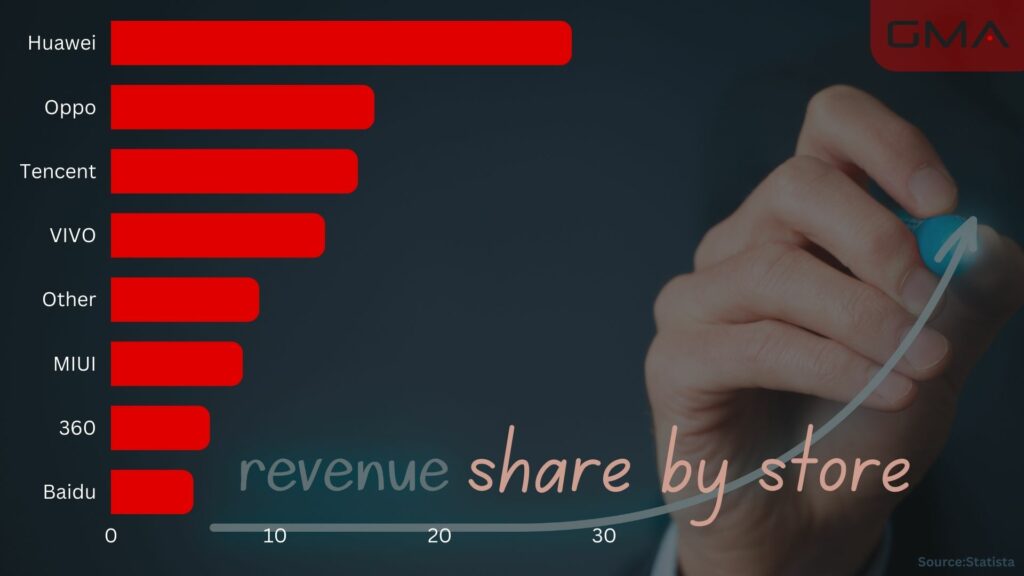
The Key Competitive Edge for App Developers Launching in China
To truly stand out and thrive in this dynamic market, developers must wield a distinct competitive advantage. What is this advantage, you ask? It’s a fusion of factors that sets your app apart from the sea of offerings and ensures its resonance within the hearts and screens of Chinese users.
Localization Mastery
Within China’s expansive realm, a noteworthy statistic comes to light: every fourth Chinese smartphone user embraces foreign apps, accounting for a staggering 212 million individuals. However, it’s crucial to note that despite this adoption, domestic apps retain their firm grip on market dominance.
Venturing into the Chinese market necessitates a finely tuned approach, one that aligns harmoniously with the rules of the local landscape. It’s not a mere translation of your offerings that will suffice; rather, it’s about crafting products that resonate authentically within the intricate fabric of the Chinese market. The cornerstone of any effective localization strategy begins with comprehending the nuances of the Chinese market – a vital initial stride toward success.
To succeed in China, hosting your app on local servers and integrating it with Chinese cloud systems is essential due to overseas connectivity issues. Two options for accessing Chinese servers include local partnerships or having a Chinese legal entity.
For selling in China, accurate Chinese translation is critical, surpassing automated tools like Google Translate. Choose between Simplified and Traditional Chinese based on your target market.
Beyond basic translation, align your app’s design and layout with Chinese preferences. Attention to detail is crucial in this competitive market, where even minor errors can be detrimental to foreign app developers. Prioritize seamless user experiences that resonate with Chinese habits.
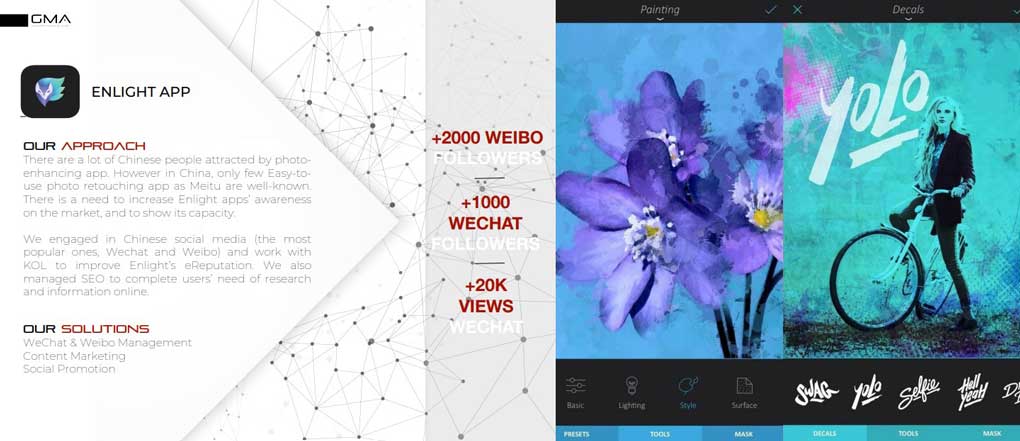
Navigating Regulatory Complexities
Navigating China’s regulatory landscape is a critical aspect. Understanding and adhering to the country’s regulations, including data privacy laws and content restrictions, is non-negotiable. A compliance-savvy app demonstrates your commitment to respecting local norms and earns the trust of both users and regulators.
Securing a Business License and App Copyright Qualification in China
In the intricate landscape of the China mobile app market, governmental involvement is pronounced. To ensure your app functions seamlessly within China, sans the need for a VPN, and gains access to Chinese app stores, obtaining a Chinese business license is imperative.
Fortunately, the process of acquiring this license isn’t as convoluted as it may seem. However, we recommend enlisting the assistance of an agency to navigate the administrative complexities, given that handling these matters can be quite a hassle in the midst of the Middle Kingdom.
For a comprehensive understanding of how to obtain a Chinese business license, delve into further details here.
Unlocking the Path to App Copyright Qualification
The Software Copyright Certificate wields legal significance, substantiating ownership and copyright for mobile apps in China. This certificate serves as a gateway to launching your app on Chinese app stores while safeguarding its rights within the country’s borders.
To secure this copyright certificate, you’ll need to furnish the requisite documentation and information to the China Trademark office. This dossier includes essential details about the app and your company, along with a user manual and a snippet of the source code. Anticipate a waiting period of 2 to 4 weeks for the delivery of your Chinese Software Copyright Certificate—a pivotal step in safeguarding your intellectual property rights within China’s app sphere.
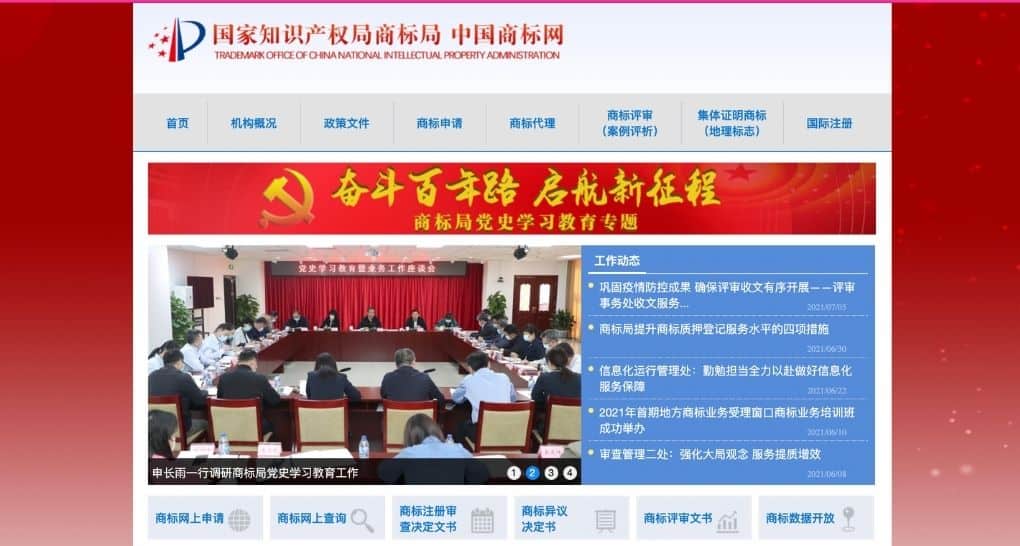
User-Centric Design
Building an app that prioritizes user experience is an undeniable edge. A seamless, intuitive interface combined with features that cater to Chinese users’ specific needs and preferences will help your app rise above the competition.
Amid the ever-evolving app landscape, certain tools emerge as indispensable for seamless integration within your application.
QR Code Revolution
In China, QR codes pervade every corner, acting as portals that instantly provide users with the desired information, all while seamlessly directing them to your application. This approach eradicates the need for manual typing, ensuring swift connections.
These codes serve a myriad of purposes:
- Promotions and Coupons: Integrate QR codes to offer your audience enticing promotions and coupon deals, fostering engagement and conversions.
- Social Media Connection: Seamlessly link users to your other social media platforms, creating a comprehensive digital presence.
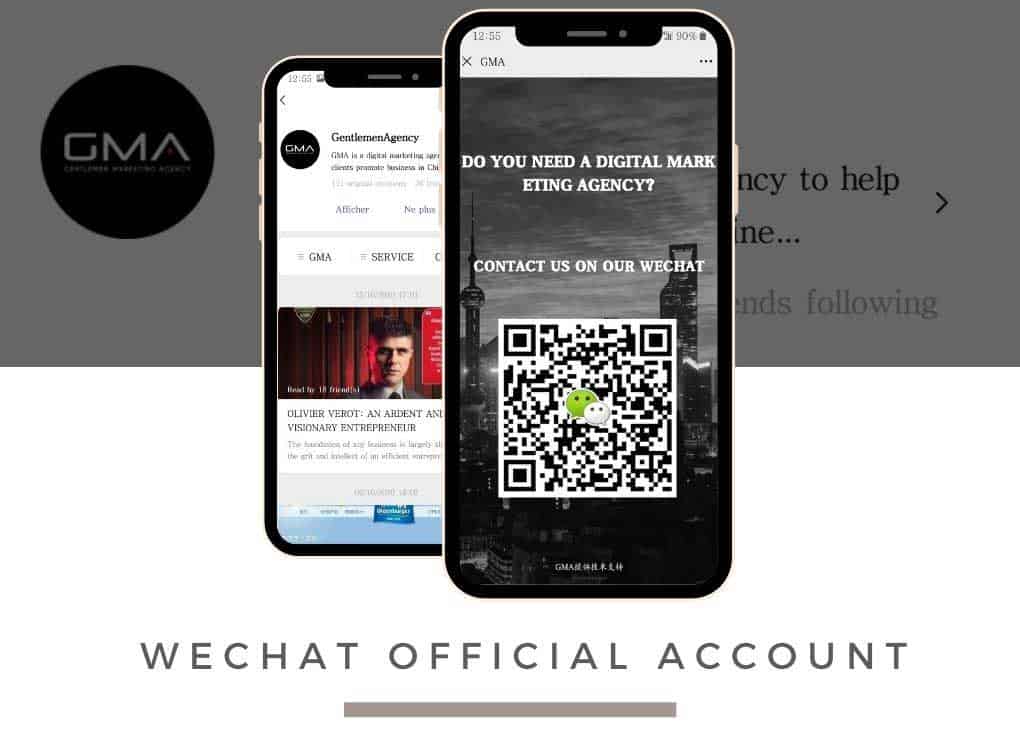
Harnessing Relevance for Effective Promotion
Beyond QR codes, incorporating pertinent tools proves pivotal in promoting your app. Consider tools like:
- Localization Tool: Tailor your app experience based on users’ geographic locations, enhancing relatability and usability.
- Demographic Insights: Grasp the demographic composition of your audience, allowing for precise targeting and strategic content creation.
- User Interests Mapping: Gain insights into user preferences and interests, fine-tuning your app’s offerings for heightened engagement.
Ultimately, the objective is fostering user loyalty. Captivate your audience’s attention and instill a sense of affinity, nurturing recurrent app usage and yielding elevated returns on your investment. By seamlessly weaving these tools into your app’s fabric, you lay the foundation for a thriving and user-centric digital presence.
Effective Monetization Strategies
Understanding the Chinese user’s willingness to pay and tailoring your monetization strategy accordingly is crucial. Whether it’s through in-app purchases, subscriptions, or other innovative models, striking the right balance between value and cost is key.

The Power of Local Platforms
Embracing the pulse of the local digital landscape holds the key to unlocking unparalleled growth for your app. By seamlessly integrating your app with the prevalent local platforms and ecosystems, you establish a direct link to the hearts of Chinese users. Among these, platforms like WeChat, Alipay, and Douyin stand as beacons of connectivity and engagement.
WeChat: The All-Inclusive Universe
WeChat, a superapp that transcends messaging, offers a multifaceted ecosystem where users socialize, shop, pay bills, and more. By embedding your app within WeChat, you tap into an expansive user base, propelling your app’s discoverability and engagement to soaring heights.
Digital Payment: The Financial Nexus
Alipay and WeChat Pay boast a vast user network extending from payments to investments. Integrating your app with these positions it at the nexus of users’ financial activities, opening doors to seamless transactions and heightened user participation.
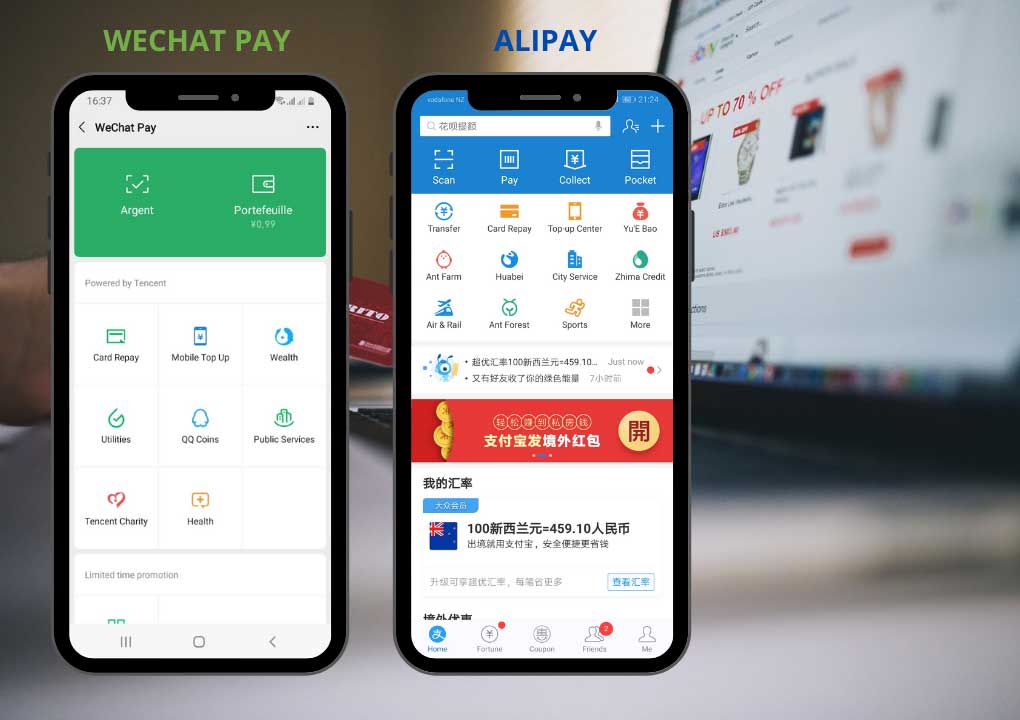
Douyin: The Captivating Content Hub
For visual storytelling and engagement, Douyin (Tiktok) reigns supreme. As a platform synonymous with short-form videos, it captivates millions. Integrating your app with Douyin enables a captivating content exchange, amplifying user interaction and propelling your app into the spotlight.
Through these integrations, your app becomes a seamless extension of users’ daily interactions. This bridge fosters convenience, amplifies discoverability, and ignites user engagement. By tapping into these local platforms, your app transcends mere functionality, evolving into an integral aspect of users’ digital lives, thereby driving sustained growth and success.
Continuous Innovation
The tech landscape in China is fast-paced and ever-evolving. Regularly updating your app with fresh features, content, and improvements showcases your commitment to staying relevant and engaging for your users.
Data-Driven Insights
Make data your ally. Harness the power of analytics to gain insights into user behavior, preferences, and pain points. Adapting your app based on these insights fosters user loyalty and attracts new users.
In essence, succeeding in China’s app market requires a holistic approach that combines adaptation, innovation, and an astute understanding of local dynamics. By embracing these facets and embodying a competitive advantage tailored to this unique landscape, developers can unlock the door to a thriving app journey in China.
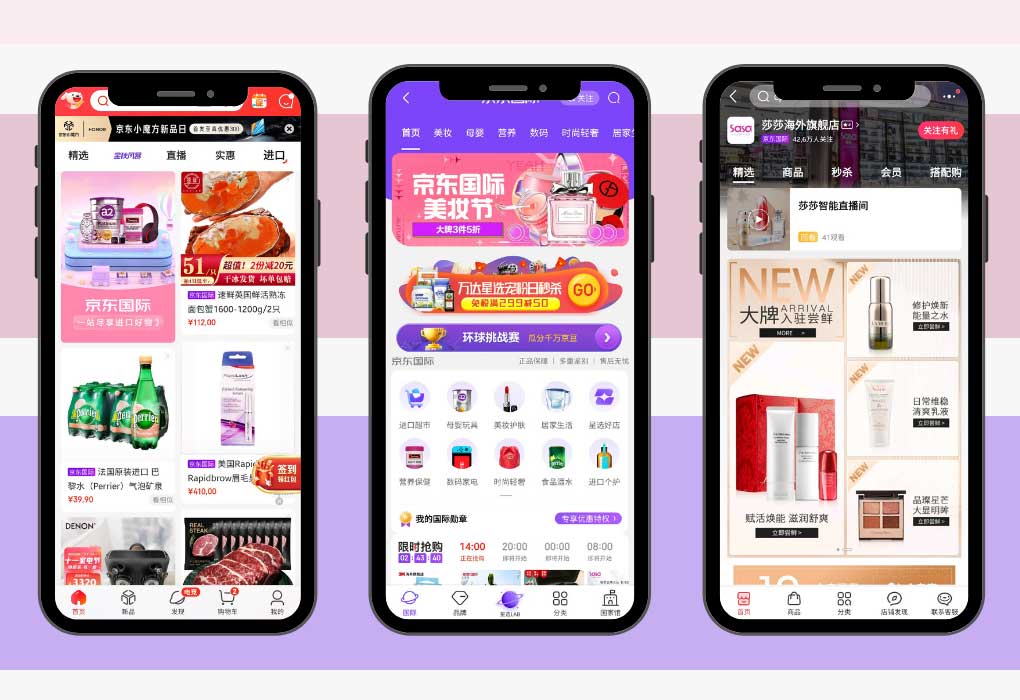
How to Market Your Mobile App in China?
Exploring the Realm of Mobile Network Advertising
Within the realm of mobile advertising, a plethora of networks stands ready to elevate your app’s performance, driving both enhanced downloads and potential revenue streams. Among these networks, several prominent players emerge, providing you with tools to optimize your app’s visibility and financial gains:
AppFlood: Optimization and Monetization
AppFlood emerges as a robust ally for developers seeking to fine-tune their applications and maximize their traffic’s potential. This platform offers a gateway to streamlined optimization and effective monetization strategies, ensuring your app thrives in the competitive landscape.
Adwo: Chinese Advertising Prowess
Stepping onto the Chinese advertising stage, Adwo stands as a formidable platform, offering multifaceted solutions to both developers and advertisers. Its array of offerings spans diverse avenues, granting you the power to generate revenues through various means.
These networks facilitate revenue generation through two principal avenues:
- Promotion of Other Apps: By promoting fellow apps, you secure a share of the generated revenues. Your app becomes a conduit for directing users to other enticing offerings.
- In-App Ad Placements: Seamlessly integrate advertisements within your app, employing diverse monetization models such as CPI (Cost Per Install), CPC (Cost Per Click), CPM (Cost Per Mille), and PPD (Pay Per Download). Each user interaction – downloads or clicks – contributes to your earnings.

Strategic Implementation for Launch Success
During the initial stages of your app’s launch, these platforms offer a dynamic boost, elevating download numbers and propelling your app toward prime positions in popular app results. However, it’s vital to note that this swift surge isn’t perennial.
Some users attracted through this ‘fad’ marketing may eventually move on and uninstall your app. This signifies that while leveraging these platforms can catapult your launch, cultivating a strong e-reputation and fostering organic word-of-mouth growth remains a sustained strategy for enduring success in the digital landscape – both online and offline.
Mastering App Store Optimization (ASO)
ASO, an acronym for App Store Optimization, is the cornerstone of app success. This strategic process entails selecting the most fitting keywords to position your app ahead of competitors in search rankings.
Beyond keyword selection, a consistent and effective approach involves updating your app at regular intervals, ideally every 2 to 3 weeks. By infusing your app with regular updates, you ensure its continuous freshness, establishing a firm foothold in the fast-paced market and maintaining its relevance amid the dynamic landscape.

Fostering App Credibility through PR and KOL Collaborations
In your quest to enhance app visibility, a potent avenue to explore is the implementation of a robust PR strategy. This approach entails:
- Forging Connections with Influential Platforms: Reach out to specialized websites that wield the power to sway users toward downloading your app. These platforms hold the potential to significantly impact user decisions.
- Crafting Engaging Videos: Develop an interactive and captivating video that vividly showcases your app’s functionality and the user benefits it brings. A well-crafted video can be a compelling tool for attracting user attention and engagement.
- Engaging Key Opinion Leaders (KOLs): Identify prominent voices within the mobile app realm and initiate contact. Offer them the opportunity to experience and evaluate your app firsthand. Their reviews and endorsements carry weight, as their followers trust their insights.
- Embracing Feedback: Remain open to the feedback and commentary provided by KOLs. Demonstrate your willingness to act on their suggestions, signaling your commitment to app improvement and user satisfaction.
By synergizing PR and KOL collaborations, you not only amplify your online visibility but also establish a foundation of reliability for your app. Leveraging the influence of KOLs, who boast dedicated followers that trust their recommendations, can significantly enhance your app’s credibility. This alliance not only enriches your app’s online presence but also fosters a sense of authenticity and trustworthiness among your target audience.
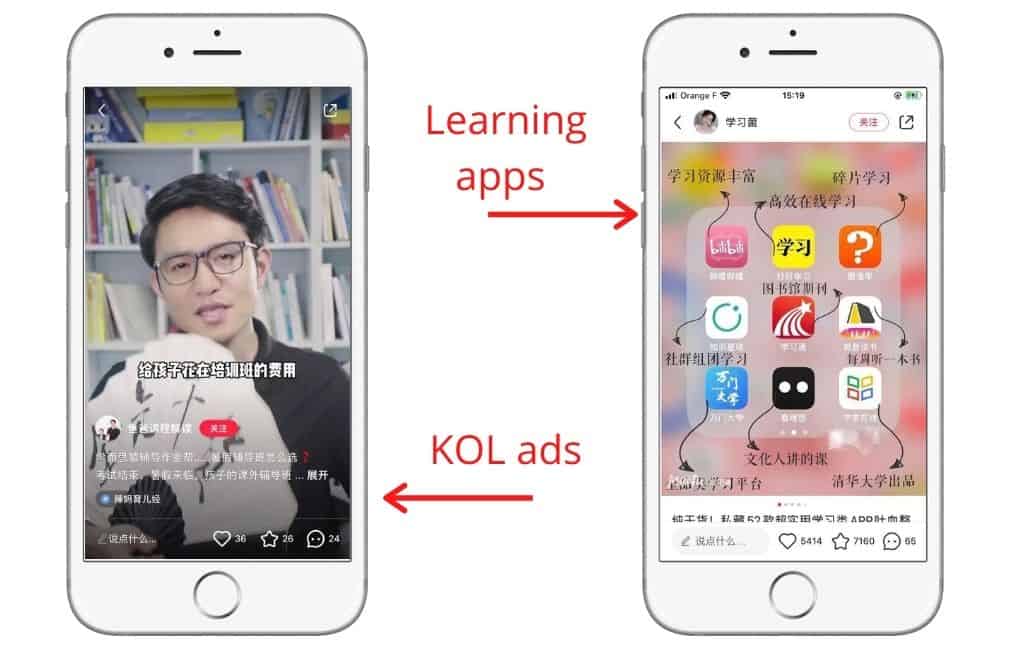
Social Media Promotion
Social Media Promotion will help increase your app/company’s brand awareness so that users can find out about your app and proactively search for it in the app stores. In China, there are two main social media platforms: WeChat and Weibo. WeChat, the WhatsApp equivalent in China, is the most common messaging platform and offers promotion opportunities through official company accounts and official banners.
Weibo, the Chinese version of Twitter, is the most popular micro-blogging platform and offers opportunities to promote via official company profiles. In addition to the site, you can also think of doing lead generation, or trying to collect the contacts of all those people potentially interested in that kind of app through PPC campaigns.
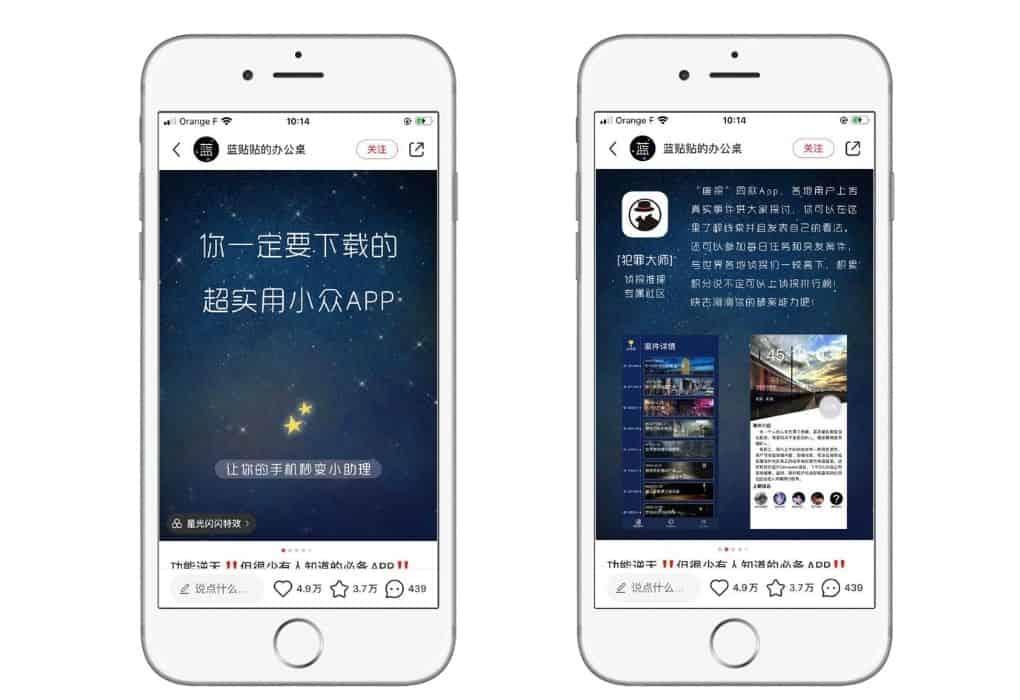
O2O (Online to Offline) Strategy: A Potent App Promotion Approach in China
In the dynamic landscape of Chinese app promotion, the O2O strategy emerges as a resounding success. O2O, denoting Online to Offline, centers on bridging the divide between virtual and physical transactions.
This concept finds expression in various forms, often involving enticing customers to make online purchases with the added incentive of collecting their items or services in person. This can encompass perks like free shipping or discounts for in-store acquisitions.
O2O marketing’s ascent mirrors businesses’ pursuit of innovative tactics to steer customers toward online purchases. By forging a seamless connection between online and offline realms, businesses reap the rewards of heightened sales and a streamlined customer journey.
Embracing O2O marketing in China presents a dynamic way to amplify app promotion. By deftly merging the online and offline realms, businesses craft a holistic user experience that translates into enhanced app adoption, amplified engagement, and tangible success.
Ready to Unleash Your Mobile App in China?
Your search ends here — we’re at your service. With over two decades of seasoned expertise, our agency stands poised to assist you. Feel free to reach out to us anytime, and let’s embark on this exciting journey together to enter the Chinese market with your app.



